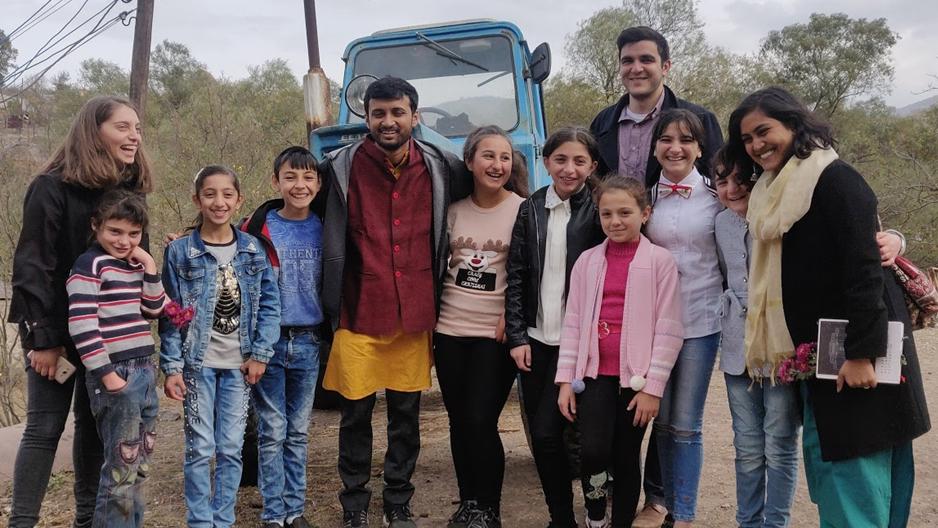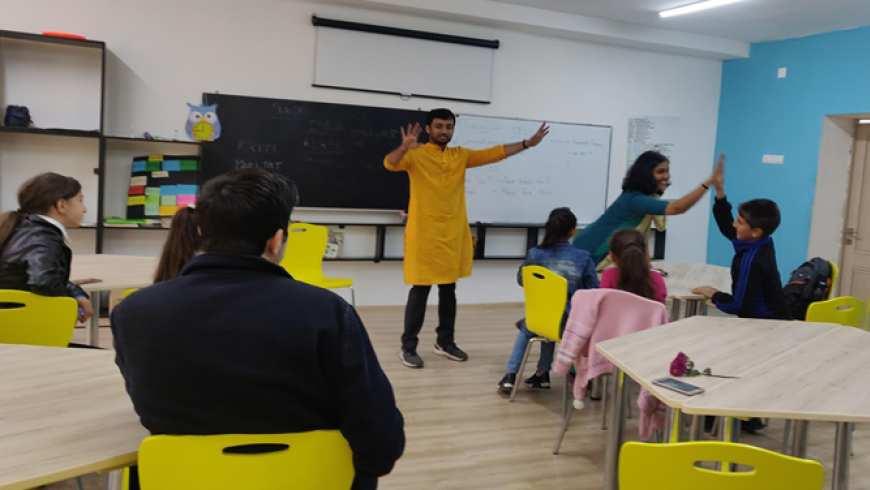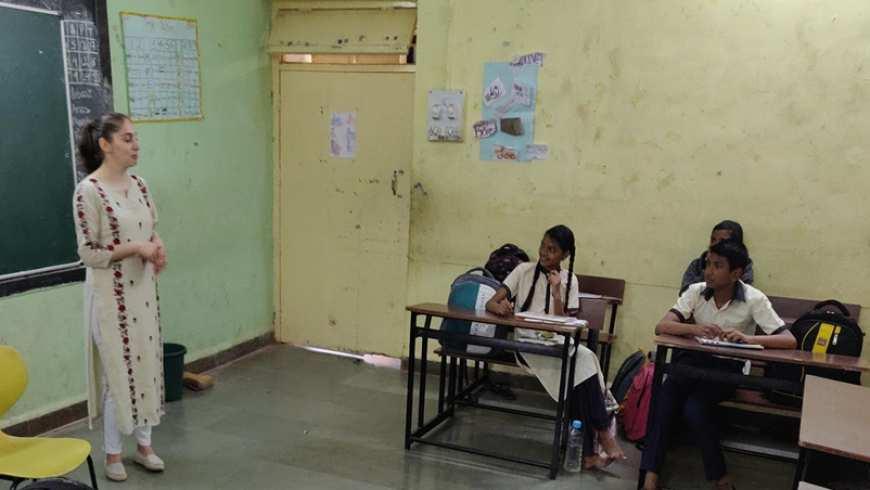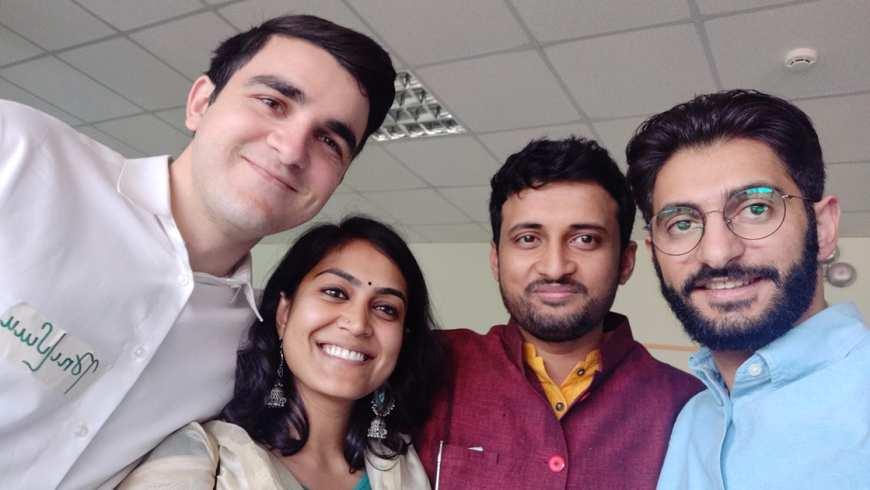From New Zealand to Armenia and India: Learning Together About Inclusive Education

In May 2019, Teach For Armenia alumnus Manuk Khachatriyan and Teach For India alumnus Parijat Prakash participated in Teach For All and the Oak Foundation’s Reaching All Learners fellowship. As part of the fellowship, they visited New Zealand, where they learned about the experience of engaging students with learning differences alongside representatives from across the Teach For All network.
During their time in New Zealand, Manuk and Parijat saw first-hand the way in which challenges are similar across borders and the value of sharing and learning from people facing similar issues in other countries. Inspired by this experience, they decided to expand on the idea of cross-border learning and applied to Teach For All’s Communities and Connections fund. Together with Kriti Bansal, a program manager at Teach For India, and Shushanna Manjikyan, a Teach For Armenia alumna, they developed an initiative to build strong and sustainable connections between Armenia and India by sharing resources and creating opportunities for fellows, staff, and alumni from Teach For India and Teach For Armenia to share learnings and best practices that could be implemented in their classrooms.
Visiting Each Other’s Classrooms and Communities
In October, Parijat and Kriti traveled to Armenia and conducted interactive sessions on metacognition and best classroom teaching practices for 120 Teach For Armenia fellows and several staff members. They also visited a Teach For Armenia fellow's classroom to observe how Universal Design For Learning (UDL) is being implemented to reach different learners.

In December, Manuk and Shushanna traveled to Pune, India, where they visited a state-funded public school and two schools run by The Akanksha Foundation to understand Teach For India’s context and challenges. Through informal communications with students, teachers, and school leaders, Manuk and Shushanna learned from their best practices on student engagement and classroom management techniques. In addition, Manuk and Shushanna conducted sessions on Universal Design For Learning (UDL) for Akanksha school staff and Teach For India program managers with the aim of making the teaching practices inclusive to all learners of a classroom.
Highlights and Learnings
For Manuk, in addition to many learnings, there were two highlights from his time in India that he felt were especially important to bring back to Armenia and share with his Teach For Armenia colleagues and teachers. The first was the reflective practice that Akanksha teachers facilitate where, before starting the school day, all the students respond to reflection questions for 15 minutes. The second was the student council, which was completely student-led. “The significant roles and responsibilities that the school administration gives to the student leaders help them be self-aware and to take ownership for their own learning and growth,” Manuk explained.
Shushanna was also inspired by the students she met in India. “During our three school visits I did not miss a chance to speak with students, observe them as learners in and outside of classrooms,” she shared. “What stood out to me was the students' curiosity, how they started the conversation, and led it with the help of strong communication skills.” For her, this experience demonstrated the importance of cross-border initiatives to enable adults to learn not only from each other but also from students.

Parijat pointed to three major learnings from his visit to Armenia and through the cross-country project overall. The first was the value of deeper community engagement initiatives and immersions. Unlike some Teach For All network partners, Teach For Armenia places teachers in rural areas, and fellows often choose to live in the communities where they teach. “I believe this has incredible power in understanding the contexts of our children by experiencing it first hand, and also being in the community and immersing yourself fully in it, to have positive shifts in the child’s life,” Parijat noted.
Parijat’s second learning was around the power of Manuk bringing back what he learned about Universal Design for Learning in New Zealand, which led Teach For Armenia to design their summer institute and support all of their fellows in internalizing inclusive education. Finally, Parijat was struck by the potential of collaboration across borders. “After our numerous interactions with the Armenian children, teachers, principals, and parents,” he explained, “we realized how we all are driven by one common mission of preparing our kids for the ever-changing global world, and that coming together and sharing of the best practices really adds a lot of value in our teaching."
Kriti shared that the initiative gave him a deeper insight into the common challenges in education in both countries. Additionally, he was struck by Teach For Armenia’s commitment to community engagement and their community impact projects in the second year of the fellowship, and noted that the cross-border initiative pushed him to zoom out from daily challenges and look at the bigger picture. “What I realized in the process of this visit and engagement was that the center of all our work is the pool of students that we are supporting,” she explained. “The challenges that students face throughout the world are similar. The only thing we need to keep in mind is how our approach is completely student-centric with respect to the rigor and the learning needs of the students.”
Read more stories of Teach For All network participants and alumni connecting and learning from each other on the Network Teachers & Alumni page.




